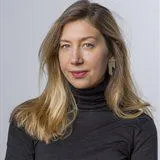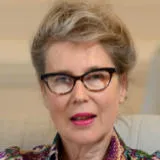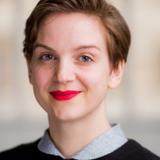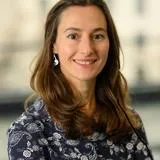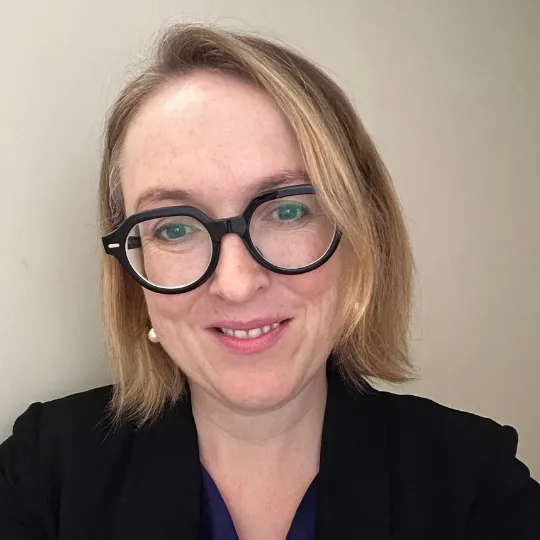"We were delighted to see such a strong response to this new seed fund, with applications across six faculties. This demonstrates the potential power of creative practice in research and education at King’s; supporting interdisciplinary innovation and societal impact and aligning with the government’s focus on creative industries in the recent industrial growth strategy."
Beatrice Pembroke, Executive Director, King’s Culture
04 April 2025
King's Culture announces Creative Practice Catalyst Seed Fund recipients
King's Culture announce the recipients of a new creative practice seed fund, enabling researchers and academics to consolidate relationships with partners in the cultural and creative industries.

King's Culture have announced the recipients of the Creative Practice Catalyst Seed Fund, including researchers and academics from King's faculties of Arts & Humanities, Natural, Mathematical & Engineering Sciences, Nursing, Midwifery & Palliative Care and Social Science & Public Policy, working in collaboration with practitioners in theatre, music, museums, AI and creative technology
King’s Culture’s Creative Practice Catalyst Seed Fund of £4,000 per project, will enable these existing interdisciplinary collaborations to spend additional time working together to develop their ideas as well as a joint proposal to leverage further external funding.
The projects chosen to receive the seed fund have the potential to advance research enquiry in mutually beneficial and equitable ways, to feed into teaching, build enduring creative relationships into student learning, or to develop knowledge exchange-oriented activity, connecting to the wider societal benefits of existing research.
In addition to the seed funding, recipients will receive the ongoing support and professional guidance of the King's Culture team.
The selected projects are:
Professor Dame Anne-Marie Rafferty CBE, Florence Nightingale
Faculty of Nursing, Midwifery & Palliative Care
with Triptych Theatre Company
Heart to the Bone
Heart to the Bone will be a powerful verbatim theatre production exploring the impact of moral injury on NHS workers during the COVID-19 pandemic. Developed from 30 anonymous interviews conducted by NHS CHECK, the play will bring to life the personal stories of those who faced impossible choices, ethical conflicts, and emotional turmoil on the front lines.
Initially conceived by Professor Dame Anne-Marie Rafferty CBE, the project is being scripted by playwright Benny Ainsworth. By presenting these testimonies in their own words, Heart to the Bone offers a deeply human perspective on the struggles and resilience of NHS staff, moving beyond statistics to reveal the emotional cost of crisis.
This timely and urgent piece aims to provoke conversation and deepen public understanding of the realities of frontline healthcare, ensuring these voices are heard.
Dr Red Chidgey, Culture, Media & Creative Industries, Faculty of Arts & Humanities
with Whitechapel Gallery and Iniva
Collaborative Futures: Exploring Future-Making in the Cultural Sector
How do cultural institutions imagine the future? Led by Dr Red Chidgey, a Senior Lecturer in the Department of Culture, Media and Creative Industries, the Creative Practice Catalyst award will support research and development for a new project examining how cultural sector organisations mobilise imaginaries of ‘the future’ in a time of ongoing crisis – including the climate crisis, transformative AI, post Covid-19 recovery, and the culture wars.
In collaboration with co-investigator Dr Nuria Querol (Department of Art, Goldsmiths), this award provides vital resources to explore co-production methods and knowledge exchange with cultural sector partners, Whitechapel Gallery and Iniva.
Dr Joseph Fort, Music, Faculty of Arts & Humanities
with English Chamber Orchestra
Discovering Neglected Music with the English Chamber Orchestra
Discovering Neglected Music celebrates the 150th anniversary of the birth of Samuel Coleridge-Taylor. King’s is well placed to celebrate Coleridge-Taylor’s birth: his father came to England from Sierra Leone in order to study Medicine at King’s.
This project seeks to build awareness of Coleridge-Taylor’s music, with a mini-festival of compositions. Events will include a performance of his last oratorio, The Atonement, in a new chamber version by Joseph Fort, a concert of his chamber music, an Evensong showcasing his sacred music, and a performance of his partsongs. The English Chamber Orchestra will work alongside the Choir of King’s College London and students from the Music Department.
Dr Oya Celiktutan, Engineering, Faculty of Natural, Mathematical & Engineering Sciences
with Air Giants
Expressive Encounters with a Giant Soft Robot
This project will bring together the Social AI & Robotics Lab at KCL with expertise in human-robot interaction and the team at Air Giants, a creative robotics studio known for building inflatable, pneumatically controlled, tactile robot creatures. They will explore robotic gesture on a grand scale by animating the behaviour of a giant (and very non-human-shaped) interactive soft robot in an arts setting, engaging with a friendly audience.
The project will deliver a striking and engaging creative experience using an existing Air Giants robot, which we will use to conduct preliminary investigations.
Professor Kate Devlin & Dr Eleonora Lima, Digital Humanities, Faculty of Arts & Humanities
with We Are AI
Empowering older voices through sensory storytelling about AI
Traditional models of AI literacy often centres on preparing older adults as users of AI but rarely consider them as active contributors or valuable voices in the conversation about AI technologies, meaning we stand to lose the wealth of knowledge and perspectives of older individuals who can illuminate how history might be repeating itself in the context of modern technology.
Inspired by the success of the Barbican's Memory Boxes, this project will pilot “AI Boxes” containing sensory materials and AI-themed fictional narratives to spark conversation and allow participants to engage in a non-intimidating way, also prompting critical thinking and discussion.
Through guided workshops with We and AI – a UK non-profit advancing AI literacy for social inclusion through art creation, creative approaches and critical thinking – the “AI Boxes” aim to make AI more relatable, empowering older adults to share their perspectives to understand the technology and contribute to societal discussions on its uses.
Dr Nafees Hamid, War Studies, Faculty of Social Science & Public Policy
with Complicité Theatre Company
“The Extremist Mind”
The Extremist Mind will tell the story of Nafees Hamid’s experience of travelling the world and meeting members of extremist and terrorist organisations (e.g. ISIS, Hezbollah, IRA, Neo-Nazis, Tamil Tigers, FARC, etc) and scanning their brains. The one-hour play will tell Nafees’ story of how and why he recruited extremists to get their brains scanned, sometimes in the middle of war zones, and what he learned from the science. Throughout the show, the lens will slowly turn from the extremists themselves to our broader society.
The goal of the show is partially to communicate the social neuroscience of extremism, but also to reveal deep truths about human nature and the modern societies in which we all live. Working with Complicité theatre company, Nafees hopes to grasp the multi-layered potential of storytelling – both as a tool for understanding human behaviour but also as a tool for intervening in it. Through the collaboration they aim to develop the show ready for a full theatrical run.

